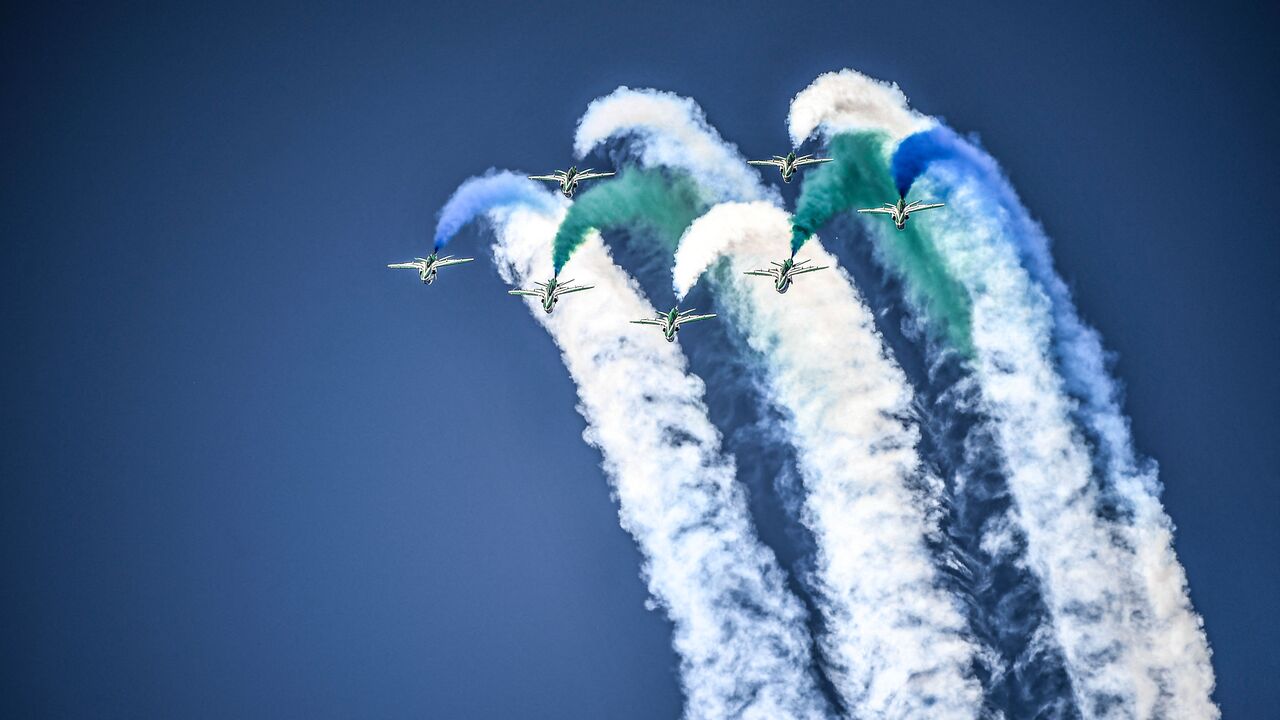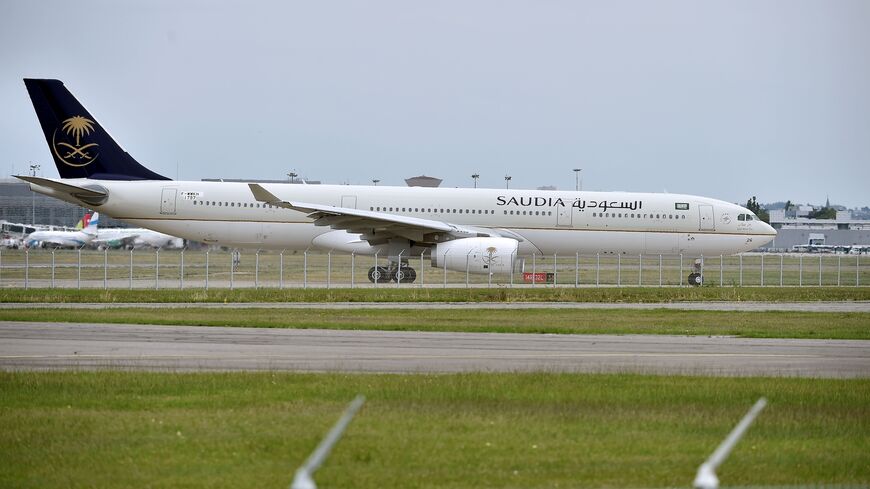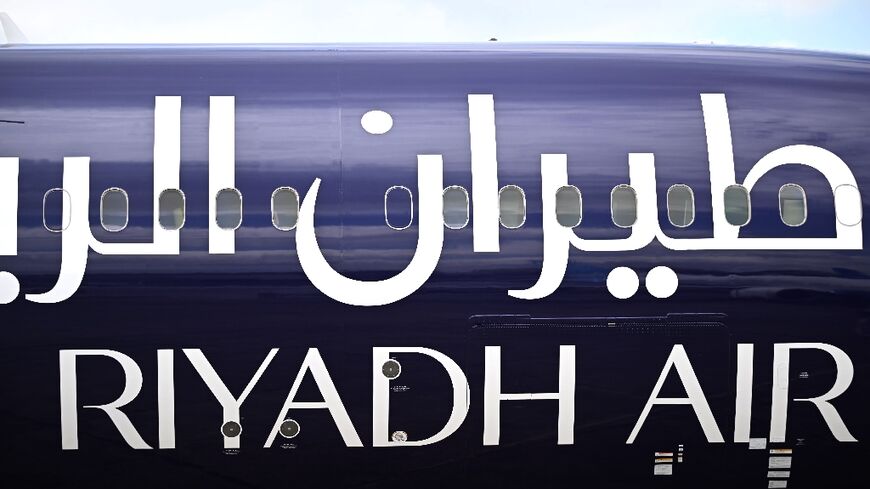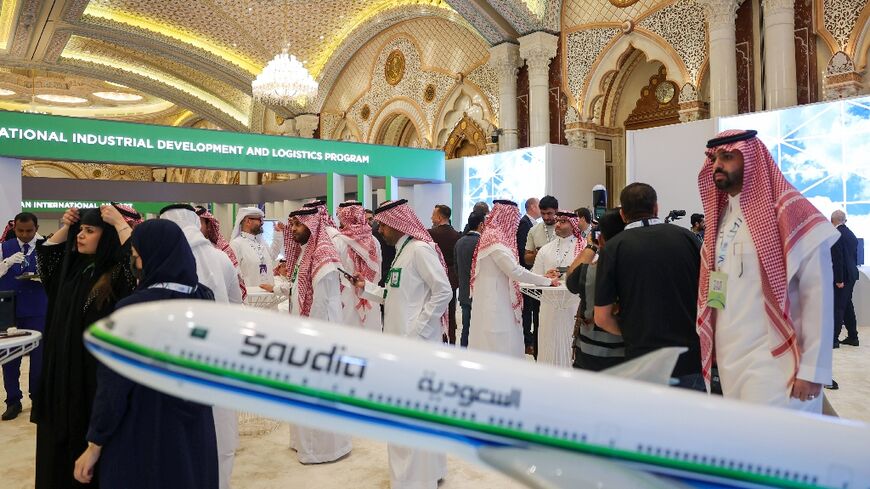What’s behind flurry of Saudi helicopter deals with Airbus, Leonardo?
The Saudi sovereign fund’s helicopter firm inked several agreements during a helicopter expo in this week, choosing to partner with Airbus amid concerns about Boeing.

Saudi Arabia boosted its helicopter industry this week via agreements with European air giants Airbus and Leonardo, though the kingdom has a ways to go before its realizes its global aviation ambitions.
The Helicopter Company (THC), owned by the Saudi Public Investment Fund, signed a framework agreement with France’s Airbus on Tuesday. Per the agreement, Airbus will deliver 120 helicopters to THC over the next five to seven years. The deal includes orders of eight of Airbus’ H125, which THC will use for unspecified aerial work and tourism, and 10 of Airbus’ H145 choppers to be used for emergency medical services and corporate transport, Airbus said in a statement.
On Wednesday, the Italian aerospace firm Leonardo S.p.A. said THC signed an order for 20 of its AW139 helicopters and a separate framework agreement for more than 130 helicopters. The deliveries of the AW139s are expected in 2025 and 2026 and will aid with medical and rescue operations. The other helicopters will be delivered over five to seven years, including some during the first half of 2024, Leonardo said in a statement.
The deals were signed at the Helicopter Association International’s Heli-Expo that wrapped up on Thursday in the US state of California.
THC additionally signed a memorandum of understanding with a subsidiary of the US-based flight solutions firm Bristow Group to work on advanced air mobility initiatives in Saudi Arabia, Bristow said in a statement on Tuesday.
The sovereign fund established THC in 2019 as part of the kingdom’s Vision 2030 initiative for economic diversification.
Why it matters: The orders constitute a serious expansion of THC’s current fleet of 47 aircraft and follow THC ordering six helicopters from Leonardo last year.
Airbus is likewise not new to the Saudi helicopter market. Last June, the company signed a $6.7 billion investment agreement with the Saudi defense firm Scopa to build military and civilian helicopters in the kingdom, Bloomberg reported at the time.
The expansion of THC’s helicopter fleet comes as Saudi Arabia is seeking to become a global aviation hub. In late 2022, the kingdom unveiled plans for a new airport in Riyadh called the King Salman International Airport. The airport is expected to be operational by 2030. Middle East Economic Digest reported on Thursday that the UK-based construction firm Mace won the bid to be delivery partner for the airport, and will thus assist with development of the project.
In March of last year, the Public Investment Fund announced its airline Riyadh Air. The airline, which plans to launch flights in 2025, seeks to compete with the so-called big three Gulf airlines: Qatar Airways, Emirates and Etihad.
Helicopters have a few different uses in Saudi Arabia. According to THC, its current fleet is used for medical, tourism and private charter purposes.
THC’s deal with Airbus comes as international customers are concerned about the safety of Boeing aircrafts after a cabin panel blew off one of the US giant’s new planes last month. Turkish Airlines grounded five Boeing planes in response, and Emirates president Tim Clark told Bloomberg that Boeing has had quality problems for some time. The fallout could pave the way for Airbus to win more deals in the Middle East, Samuel Wendel wrote in a memo for Al-Monitor PRO last month.
The safety concerns with Boeing relate to airplanes, not helicopters. However, like Airbus, Boeing manufactures helicopters in addition to planes.
Know more: Saudi Arabia faces some challenges in its quest to become an aviation and tourism hub. As they have with other projects, Saudi entities are setting hard-to-achieve targets for the aviation sector. Riyadh Air says on its website that it plans to create more than 200,000 jobs in the kingdom. According to the German data platform Statista, there were around 31,300 aviation sector employees in Saudi Arabia in 2022.
Saudi Arabia has also set an ambitious goal of gaining 330 million passengers for its airports by 2030. According to Saudi government statistics, there were under 88 million passengers in 2022, though the number constituted an increase of 82% from the previous year.
The kingdom’s tourism targets could be relatively more achievable. Saudi Arabia hopes to welcome 150 million tourists by 2030. Last year, the kingdom received more than 100 million tourists for the first time. The figures included more than 79 million domestic tourists and more than 27 million foreign ones, the United Nations’ tourism agency said in a statement on Monday.





